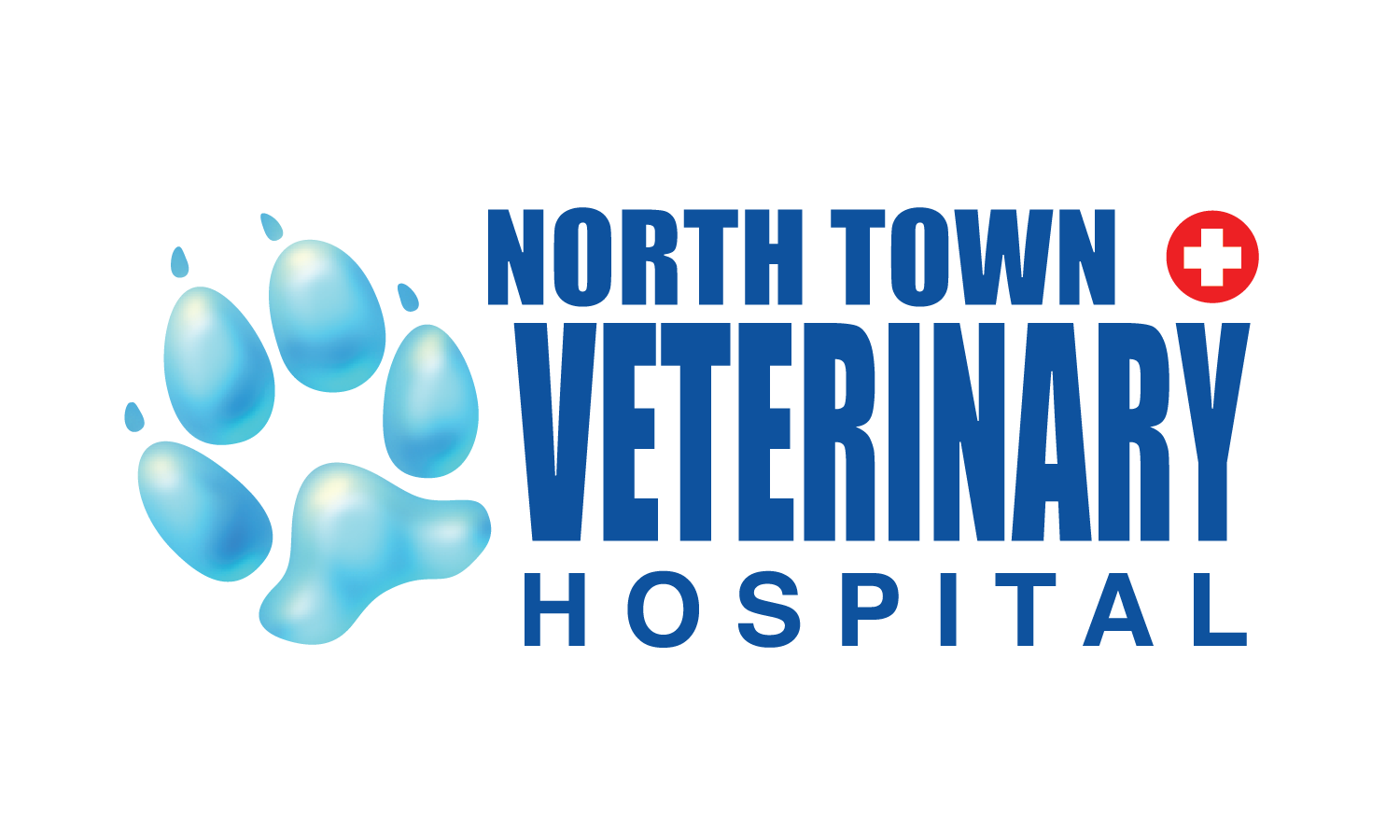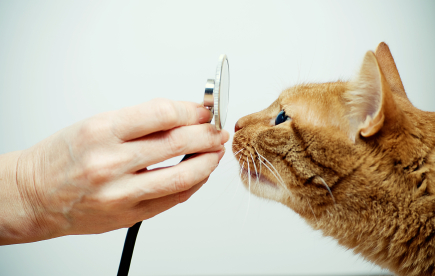What is Feline Hyperthyroidism?
Hyperthyroidism is a disorder of the thyroid gland – two small butterfly-shaped lobes located in the neck. This gland has a number of functions but is most well-known for regulating your cat’s metabolic rate. In feline hyperthyroidism, the thyroid gland is overactive and results in overproduction of the thyroid hormone. This increases your cat’s metabolism.
How does a cat get hyperthyroidism?
The exact cause of hyperthyroidism has not been identified, although the role of dietary iodine continues to be investigated.
What are the symptoms of hyperthyroidism?
- Weight loss
- Increased appetite
- Cranky/aggressive
- Increased water consumption and urination
- Increased vocalizing
- Vomiting and diarrhea
Are there certain cats that are more susceptible to hypothyroidism?
Cats that are affected by hyperthyroidism tend to be middle aged or older cats. Siamese breeds appear to have a somewhat increased incidence of hyperthyroidism.
How is hypothyroidism diagnosed?
Diagnosis begins with a full examination and taking a complete history. Your veterinarian will be looking for clinical signs of hyperthyroidism during a thorough physical examination of your cat and will ask questions about your cat’s health and behaviour. If hyperthyroidism is suspected, a blood test will be ordered.
- Baseline T4 Test or Total T4 (TT4): This is the most common test. If this test comes back positive for hypothyroidism your vet will recommend a Thyroid Profile which may inculde: TSH, Free T4 by RIA, Free T4 by ED and Baseline T3
How is hyperthyroidism treated?
They are 4 treatment options: any one of which may be the best choice for your cat;
- Oral Medications
- Prescription Diet
- Surgery
- Radioactive Iodine
What should I expect from the treatment?
Most symptoms of hyperthyroidism clear up after treatment. With regular scheduled check-ups every 6months to ensure correct dosage, your cat should be mostly symptom-free for the rest of its life. Hyperthyroid cats that receive proper treatment have a normal life span and are able to maintain good health. Recurrence of the disease is a possibility in cats depending on which treatment course you choose.
Chronic Care Program
NTVH has launched a new program called the Chronic Care Program. This no fee program has been set in place to benefit patients with chronic conditions and help pet owner’s mange these conditions more effectively.
Feline hyperthyroidism is the second chronic disease that this program has launched. All participating clients will receive a package outlining the disease as well as Loyalty Card. The loyalty card provides you discounts at various places that we have set-up throughout the community. The other great thing about this program is that for every Chronic Care Exam preformed $5.00 is donated to the Oscar Fund. The Oscar Fund is a charitable program that NTVH has set up to help animals in need that would otherwise not receive care. Check it out on our website.
https://www.northtownvethospital.com/chronic-care/




